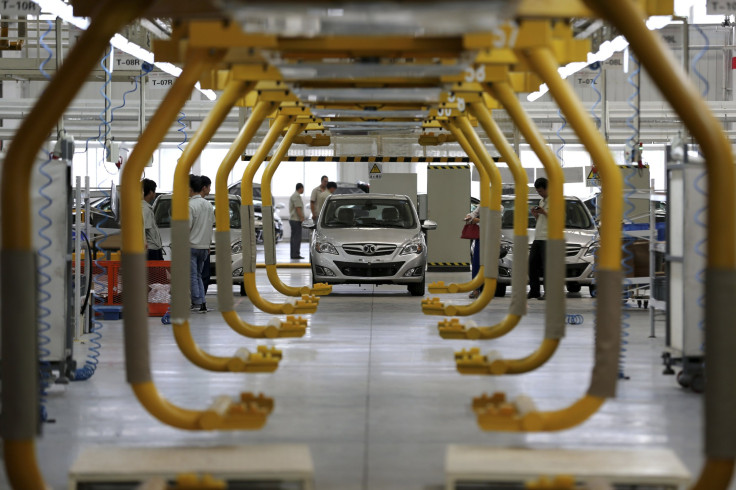China's Giving Cash To Car Buyers But Auto Market Struggling To Shift Gears

KEY POINTS
- Local governments have joined Beijing to offer cash incentives to car buyers
- Chinese auto industry expects a 10% fall in sales this year after massive drops in first quarter
- Automakers faced sales slump in the last two years after a decade of rapid growth
Chinese automakers have resumed production after the coronavirus shutdown that lasted about 75 days in some cases, but buyers were largely playing truant. The government has stepped in with a slew of cash incentives to help the auto industry that was expected to take a 10% hit in sales this year.
The industry was vital to the country’s economy that was limping back to normal after the coronavirus outbreak. Its revenue topped $1 trillion, which was roughly 10% of the country’s manufacturing, and employed directly and indirectly about 40 million people. Some carmakers were even experimenting with other company tie-ups to enter the leasing business to tide over the situation.
Automakers took 79% sales hit in February
Chinese automakers sold less than 3.7 million vehicles in the first three months of the year as compared to 6 million during the same period in 2019. To stimulate the market, the Chinese government was handing out cash to buyers who were still unsure of new purchases, a CNN report said.
China Association of Automobile Manufacturers' data showed the industry suffered a whopping 79% plunge in February, with total sales plummeting to 310,000. March saw the sales pick up to 1.43 million vehicles, which was still a 43% decline year on year.

The coronavirus outbreak hit China in November, before developing into a global pandemic, forcing the government to enforce sweeping lockdowns of key industrial cities. The virus has so far infected 82,295 people and taken 3,342 lives in China. Even before the virus outbreak, the industry was facing a slowdown with car sales falling 8% last year to about 25.8 million units, after a 3% decline in 2018, the CNN reports said.
Alicia García-Herrero, chief Asia Pacific economist at Natixis, said the plummeting demand will be even more life-threatening for the industry than the supply chain disruption the virus has caused. The industry association, which last year projected a 2% drop in sales for 2020, has not made new estimates after the COVID-19 strike. Recent independent estimates showed China's auto sales could decline by as much as 10% this year, according to an S&P analysis.
China had been in the process of scaling down market subsidies and tax breaks after a decade of rapid growth. However, the coronavirus was forcing Beijing to reintroduce some of the subsidies and extend the period of those ending soon. The beneficiaries include new energy vehicles, such as electric or plug-in hybrid cars, that would enjoy the incentives for another two years.
Chinese market is important for global carmakers
Some local governments also have introduced cash incentives to the buyer. At least a dozen cities or provinces were offering subsidies of as much as $1,400 per vehicle.
China’s return to normal was important for the global auto industry as many countries depended on their components, an NBC report said. For example, Hyundai has closed its plant in South Korea because of supply chain disruption.

Global automakers like Volkswagen and General Motors sell millions of cars in China and the return of the Chinese car market to normal was important for them too. About 40% of the total sales of each of these companies came from China, the CNN report added.
A Reuters report last month said a Chinese carmaker was teaming up with a ride-hailing company as new buyers have been keeping away. Automaker BAIC Group has joined hands with Didi Chuxing to lease BAIC’s cars to customers. The companies, which have a joint venture to develop “next-generation connected-car systems,” will partner with electric vehicle battery maker CATL, State Grid, Postal Savings Bank of China and online used car trading platform Uxin to build an “exchange of car use right,” the Reuters report said. They aim to have a fleet of 100,000 cars for leasing in the next three years.
© Copyright IBTimes 2025. All rights reserved.





















